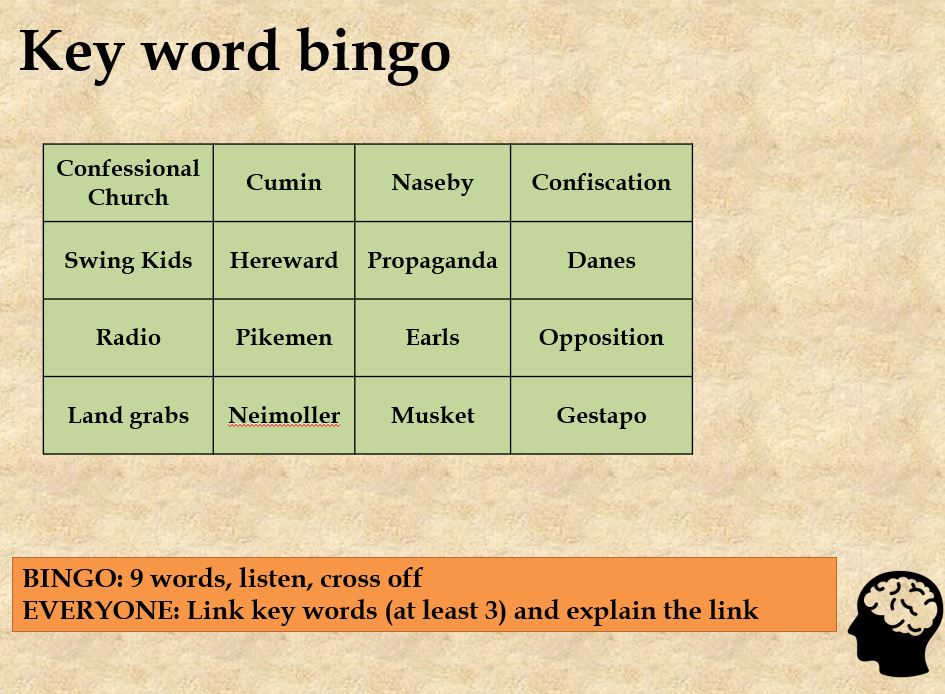I have been blessed/cursed (delete as appropriate) to have double lessons with my KS4 classes for a couple of years. These have been at varying times of day but this year we are on P4/5 on Fridays (a real joy). Now before lunch, they are relatively amenable but by the lesson after lunch, there is a struggle. Students are frequently late, unengaged and switched off by this point in the week.
So, in my quest to make this lesson more fruitful, I decided to dedicate one of my precious three lessons a week to revision. The chosen lesson; Friday P5 (we have a 6 period day). Over time I have found the most effective way of getting the Y11s to class is to play bingo as our starter task. Now, bingo may sound overly simple but I really think that this is an effective retrieval activity. It relies on students knowing and becoming familiar with key terminology. Part of our routine is to then go through any of the key words they were unfamiliar with, match them with the relevant topics and generally do a Q&A on the key terms. This is reinforced by the fact they have retrieval HWs each week and the key terminology links to this previously studied content.

This approach therefore has clear links to retrieval practice as it asks them about key content, spacing as it retrieves information from previously studied topics bringing it back to the forefront of the mind, interleaving as we are reviewing prior topics whilst studying a new one and cognitive load theory in that we are revisiting knowledge and therefore strengthening those long-term memories, increasing both storage and retrieval strength. Consequently, it is one of my favourite ways to test knowledge of key words and a favourite retrieval activity across KS3 and KS4.
Now, this may sound like a good starter activity, but this can also provide the basis of the rest of the lesson. A key follow up activity is to then link 3-4 key words – which link and how do they link? This allows students to expand their understanding and acts as a further retrieval activity, strengthening the links in long term memory but also adding a new level of challenge. By running through the misconceptions this allows all students to again be exposed to the key terminology, developing understanding even further.
The next stage of this is to develop those links even further. Through paired discussion or providing a simple context sheet, you can extent the theme of the key word bingo. This could be co planning an answer to a relevant question. For example, I find an ‘explain why’ Edexcel GCSE History question often lends itself. The focus is on explanation and so one can be usually designed to fit the key content being studied. Equally, you could use the discussion as a jumping off point for a source or interpretation analysis. Essentially, you are using the starter and the following discussion not just as retrieval but then to trigger memories of prior knowledge and learning that can then be applied to exam practice. This could then be modelled with a I, We, You approach as required, further providing scaffolding and support for all students to achieve.

Therefore, this approach has fast become one of my go-to, minimal planning revision lessons. Not only does it support student retrieval and learning but also provides an engaging way to revise whilst also ensuring (most of) my Y11 turn up on time. At the end of the day points mean prizes and they can’t get points without being in the room 😀



Leave a comment